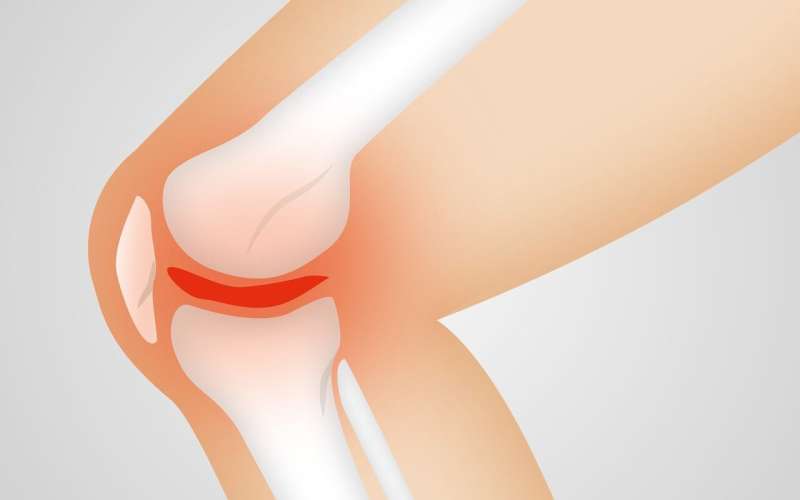Genetic study reveals possible new routes to treating osteoarthritis

In the largest genetic study of osteoarthritis to date, scientists have uncovered 52 new genetic changes linked to the disease, which doubles the number of genetic regions associated with the disabling condition.
Scientists at the Wellcome Sanger Institute, GSK and their collaborators analysed the genomes of over 77,000 people with osteoarthritis. Their findings, published today in Nature Genetics, revealed new genes and biological pathways linked to osteoarthritis, which could help identify starting points for new medicines. Researchers also highlighted opportunities for existing medicines to be evaluated in osteoarthritis.
Almost ten million people in the UK suffer from osteoarthritis, a degenerative joint disease in which a person's joints become damaged, stop moving freely and become painful. There is no disease-modifying treatment for osteoarthritis. The disease is managed with pain relief medications and often culminates in joint replacement surgery, which has variable outcomes.
Osteoarthritis is the most prevalent musculoskeletal disease and a leading cause of disability worldwide. In the UK, the disease indirectly costs the economy £14.8 billion each year.
To uncover the genetics underpinning osteoarthritis, scientists from the Sanger Institute, GSK and their collaborators analysed the whole genomes of over 77,000 people with osteoarthritis and over 370,000 healthy people using patient data from the UK Biobank resource and the arcOGEN study. The team studied many different types of osteoarthritis, including in knee and hip joints.
Professor Eleftheria Zeggini, previously from the Wellcome Sanger Institute and now based at Helmholtz Zentrum München in Germany, said: "Osteoarthritis is a very common, disabling disease with no cure. We have conducted the largest study of osteoarthritis to date, and found over 50 new genetic changes that increase the risk of developing osteoarthritis. This is a major step forward in developing treatments to help the millions of people suffering from the disease."
In order to discover which genes cause osteoarthritis, the team incorporated additional functional genomic data and analysed gene activity by measuring gene expression down to the protein level. The team integrated genetic and proteomic data on tissue taken from patients undergoing joint replacement surgery. By incorporating many different data sets, scientists were able to identify which genes were likely to be causal for osteoarthritis.
Ten of the genes were highlighted as targets of existing drugs, which are either in clinical development or approved for use against osteoarthritis and other diseases. These include the drugs INVOSSA, which is registered for knee osteoarthritis, and LCL-161, a drug in clinical development for the treatment of breast cancer, leukaemia and myeloma. The team suggest that the ten drugs highlighted would be good candidates for testing in osteoarthritis.
Dr. Stephen Simpson, Director of Research at Versus Arthritis, who supported the arcOGEN study, said: "Osteoarthritis affects over 8.5 million people across the UK. We know that the condition impacts people in different ways, meaning the treatment that works for one person doesn't always work for someone else.
"This study represents a hugely important milestone towards understanding the complexity of osteoarthritis and finding new treatments and we are delighted that our support for the arcOGEN study has helped deliver this. In the long term, the research progresses us significantly on the journey to ending the pain, isolation and fatigue of those living with arthritis."
More information: Identification of new therapeutic targets for osteoarthritis through genome-wide analyses of UK Biobank data, Nature Genetics (2019). DOI: 10.1038/s41588-018-0327-1 , www.nature.com/articles/s41588-018-0327-1


















